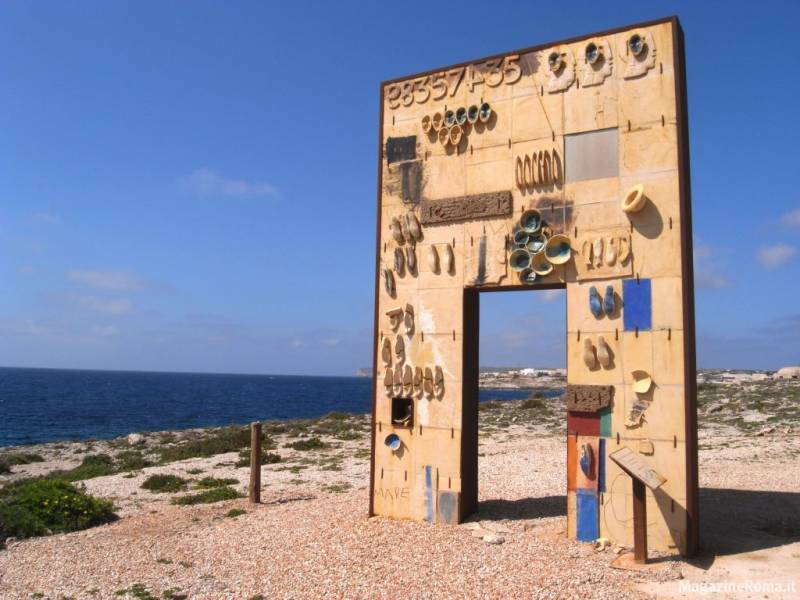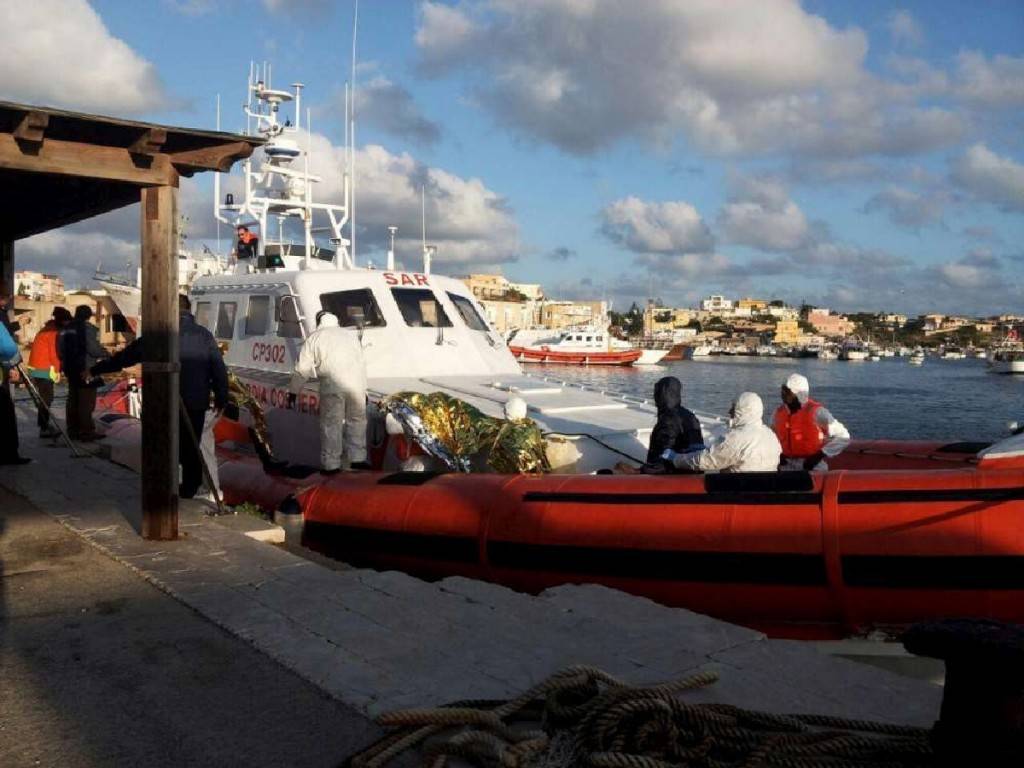Migrant Isle of Lampedusa
ROME – When the gas tank in the wretched holding camp on the Libyan coast exploded, flames seared the face and back of a young mother from Eritrea. But never mind – camps for migrants have scant hospital facilities, and so, along with the others, the burn victim was hustled onto a plastic boat that was to bear her to Italy. Despite the pain she never let hold of the hand of her two-year-old son Samuel – or at least not until the migrants landed April 16 at the Italian isle of Lampedusa.
At sight of her third- and fourth-degree burns, shocked rescuers had the woman rushed byhelicopter to the special burn unit in a hospital in Palermo, 185 air miles distant.
In the rush little Samuel was left behind, pleading for eight days “Mam, Mam.”
No one knew who his Mama was until a migrant, holding Samuel in his arms, told a social worker at Lampedusa that the child was not his.
At that point the authorities, beginning with Lampedusa Mayor Giusi Nicolini, volunteer workers from Save the Children, and Dr. Pietro Bartolo, head of the island’s medical unit, launched a search for the child’s mother.
The search was successful, and a smiling policewoman accompanied Samuel on a plane to Palermo to rejoin his mother April 24. (See >>> )
This heart-warming tale shows the Italy that cares, despite the arrival May 2 and 3 of almost 6,000 migrants. Few care more, or are more hard pressed to handle what is literally a Biblical exodus, than the courageous, front-line mayor of tiny Lampedusa, Giuseppina (“Giusi”) Maria Nicolini.
Formerly with Legambiente as director of the island’s nature reserve, she was elected with a scant 26% of the vote, but brings to the island “what there is of its civil society,” in the words of Nando Della Chiesa, sociologist and the son of Mafia victim Gen. Carlo Alberto Dalla Chiesa.
Writing in Il Fatto Quotidiano daily, Dalla Chiesa laid out the bleak situation which Nicolini had inherited from the island’s previous administrators: “A damaged territory, damaged environment, damaged legal system. At City Hall, the Guardie di Finanza [tax police] found that the previous administration’s documents had disappeared. That building sites had been opened without permits. Unlicensed establishments, including on beaches, had phony permits.” Not least the, tax police found evidence of “ambiguous consultancies.”
In an interview with the AdnKronos press agency Nicolini movingly spoke of the death of the Somalian Olympic athlete Samia Yusuf Omar, who died aboard one of the rickety boats while trying to reach Italy from Libya. More died than will ever be counted: “Over the years I’ve spoken with desperate Tunisian wives and mothers who are seeking news of loved ones who’ve simply disappeared. At Lampedusa we are not afraid of the migrants… For us they are not just numbers, but people. We see them when they arrive, we are in touch with them, and with their hopes and fears.”
The question is to what extent the rest of Europe shares some of that awareness and will take serious steps to help. The Vatican has sharply criticized the European Union’s decision last month to bomb the boats on the coast of Libya so as (the EU presumes) to halt the human traffic. Cardinal Antonio Maria Veglio’, who is president of the Pontifical Council for Migrants, said that “To bomb the boats is a very strange idea: just what will they bomb? Only migrants boats? Who guarantees that they will not kill those nearby? International law exists, and to drop a bomb on a country is an act of war.”
What Italy obviously needs, with the increased pressure from migrants arriving via land as well as sea routes, is more cooperation from the rest of Europe. In a meeting with the foreign press here last week Sandro Gozi, 46, who is Deputy Minister for Migration, made the point that for the first time the EU this month acknowledged that it had some responsibility toward Italy. “Public opinion in France and Germany was shocked at the drowning of hundreds of migrants,” said Gozi. “This helped to finally establish that the whole EU must take action. The tragedy has awakened the rest of Europe. It’s a positive sign that EU funding was inceased and that action against the traffickers is planned.” What is happening is a form of slavery, he added. “The migrants pay but then they are forced onto the boats with beatings and at gunpoint.”
Just last year 122,000 migrants landed in Europe. In Italy, the total number of those requesting asylum was of 65,000 in 2014 (43% more than in 2013), and included some 10,000 from Nigeria and 9,800 from Somalia. The most besieged country was Germany, with 202,000 requesting asylum; among these were 41,000 from Syrian and 27,000 from Serbia. Germany was also the EU nation granting the most asylum permits, or almost 6,000 in 2014. By contrast, Sweden, where 81,000 requested asylum (they included 31,000 Syrians and 12,000 Eritreans), granted only 2, 375 permits that year.
The United Nations Refugee agency UNHCR maintains that, “The number of refugees accepted by Italy remains comparative modest by comparison with other European countries and in the rest of the world.” Italy accepts only one refugee every 1,000 people. By contrast, Sweden has 11 refugees per thousand and France, 3.6.




































i-Italy
Facebook
Google+
This work may not be reproduced, in whole or in part, without prior written permission.
Questo lavoro non può essere riprodotto, in tutto o in parte, senza permesso scritto.